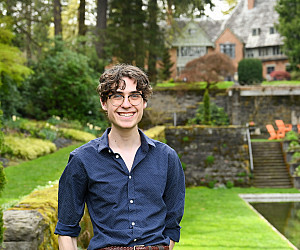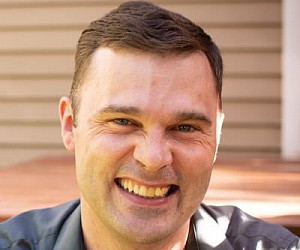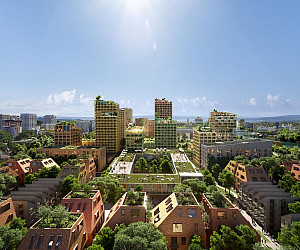It’s common knowledge that scientists and mathematicians frequently face calculations that would make the rest of us weak in the knees. But there are some calculations that pose a challenge even to the most seasoned researchers. This was the case for Assistant Professor of Physics Mohamed Anber and his research assistant Ben Kolligs ’18, who worked over the summer conducting computer simulations in order to observe the separation of quarks, which are the building blocks of protons and neutrons. This was accomplished using a new theoretical tool known as entanglement entropy.
Even with the support of the National Science Foundation (NSF), which recently awarded Anber an $80,000 grant to support his research and teaching, the work is not easy. “So far we have made considerable progress in understanding the behavior of entanglement entropy and how it can teach us about the deconfinement phenomenon,” Professor Anber said. “However, we are still far from a complete picture, since it takes us many weeks or even months in order to perform highly accurate computations.”
Kolligs echoed this sentiment: “This project has been a great way for me to learn how to code, but there’s the additional challenge of getting more power out of the computers I use.” This is a problem facing many researchers in mathematics and sciences: how can technology support a project by allowing calculations to be done faster—preferably much faster?
A group of professors at Lewis & Clark have been working to find an answer to this question. Their goal is to investigate new ways the college can invest in data science to support ambitious projects like Anber’s, and this summer they have taken a significant step forward. The college has acquired a computational server, a powerful network of interconnected computers capable of completing tasks much more quickly than a conventional system.
The server can be used to conduct extremely complex calculations more rapidly than individual computers, improving the speed and performance of a range of computations. Its acquisition will benefit researchers in a variety of different fields. For instance, Associate Professor of Biology Greta Binford is planning to use it for her work in genetic sequencing, and Associate Professor of Computer Science Peter Drake hopes to use it to collaborate with colleagues in other departments on projects like using deep neural networks to identify clouds and improve the accuracy of climate models.
Anber and Kolligs hope to use it to improve the speed of research they’ve already begun. “The new computing cluster at Lewis & Clark will make our task much easier, since now we can use the powerful multi-core processor of the new facility,” said Anber.
This investment in the college’s data science capabilities also represents an investment in individual researchers, and opens the door for exciting possibilities to come. “Data science combines enormous data sets, powerful hardware, and sophisticated techniques from statistics and machine learning,” said Drake. “Lewis & Clark’s faculty are well positioned to contribute to this rapidly expanding field.”
Biology
Computer Science
Physics
Mathematical Sciences
This story was written by Emily Price ’18.





